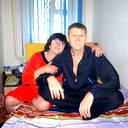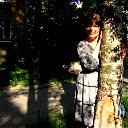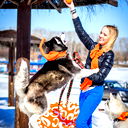Домашние задания: Другие предметы
Перевод с русского на английский!!!!помогите пожалуйста....умоляю
нужно перевести текст, без переводчика....помогите, прошу.... ВОТ ТЕКСТ Россия – поистине уникальная страна, которая наряду с высокоразвитой современной культурой бережно хранит традиции своей нации, глубоко уходящие корнями не только в православие, но даже в язычество. Россияне продолжают отмечать языческие праздники, верят в многочисленные народные приметы и предания. Пасха – это светлый праздник воскресения Христа.Сначала начинается Великий Пост ,а После него на стол в этот день выставляются самые разные и вкусные блюда. И среди них первое место занимают ритуальные кушанья. И, прежде всего, это пасхи, куличи и крашеные яйца. На Руси таковым праздником является Иван Купала. В ночь с 23 на 24 июня. В это день люди опоясывались перевязями из цветов, на голову надевали венки из трав. Водили хороводы, пели песни, разводили костры, в середину которых ставили шест с укрепленным на нем горящим колесом — символом солнца.В день Ивана Купалы девушки завивали венки из трав, а вечером пускали их в воду, наблюдая, как и куда они плывут. Если венок тонет, значит, суженый разлюбил и замуж за него не выйти. Пожалуй, самым веселым праздником на Руси можно назвать Масленицу. Этот праздник считается отголоском дохристианских времен, когда славяне еще были язычниками.Осталась традиция печь блины - круглые, желтые и горячие, как солнце, а к ней добавились катания на конных упряжках и санях с ледяных гор, кулачные бой, тещины посиделки. Масленичные обряды очень необычны и интересны, так как они сочетают в себе завершение периода зимних праздничных ритуалов и открытие нового, весеннего периода праздников и обрядов, которые должны были способствовать получению богатого урожая. Мы празднуем - Троицу, Масленицу, Пасху. Мы поем российские народные песни и частушки, водим хороводы, поездка в тройках. Традиционная российская кулинария всемирно известна для таких блюд как окрошка, щи, пельмени, квас. Мы начинаем строить и восстанавливать церкви. Пример этого - здание Собора Христа Спаситель в Москве. Это - символ восстановления человеческих чувств, национальной гордости и патриотизма. Заранее огромнейшее спасибо:*:*:*
Russia - a truly unique country, which, along with a highly modern culture cherishes the traditions of their nation, deeply rooted not only in Orthodoxy, but even in paganism. Russians continue to celebrate pagan holidays, many people believe in omens and legends.
Easter - the resurrection of this light holiday Hrista.Snachala begins Lent, and after him on the table that day exhibited the most different and delicious. And among them the first place is occupied by the ritual foods. And, above all, it's Easter, cakes and painted eggs.
In Russia such a holiday is Ivan Kupala. On the night of 23 to 24 June.
On this day, people encircled stripes of color on his head wore wreaths of herbs. Circle dances, sang songs, diluted with bonfires in the middle of which put a pole with a fortified it burning wheel - the symbol of solntsa.V day St.John girl curled wreaths of herbs, and in the evening allowed them into the water, watching how and where they sail. If the wreath sinks, then out of love with and betrothed to marry him not to leave.
Perhaps the most fun holiday in Russia can be called Shrove Tuesday. This holiday is considered to be an echo of pre-Christian times, when the Slavs were still pagans. It remains a tradition of pancakes - round, yellow and hot as the sun, and were added to the horse-riding and sleigh rides with icy mountains, fist fight, Teschin gatherings. Shrovetide rituals are very unusual and interesting because they combine the end of the period of winter holidays and the opening of the new rituals, springtime festivals and ceremonies, which were to facilitate obtaining a rich harvest.
We are celebrating - Trinity, Shrovetide, Easter. We sing Russian folk songs and folk songs, dances are leading a trip to the threes. Traditional Russian cooking is known worldwide for such dishes as okroshka, soup, dumplings, kvass. We are starting to build and repair churches. An example of this - the building of the Cathedral of Christ the Savior in Moscow. This - the symbol of reviving human feelings of national pride and patriotism.
Easter - the resurrection of this light holiday Hrista.Snachala begins Lent, and after him on the table that day exhibited the most different and delicious. And among them the first place is occupied by the ritual foods. And, above all, it's Easter, cakes and painted eggs.
In Russia such a holiday is Ivan Kupala. On the night of 23 to 24 June.
On this day, people encircled stripes of color on his head wore wreaths of herbs. Circle dances, sang songs, diluted with bonfires in the middle of which put a pole with a fortified it burning wheel - the symbol of solntsa.V day St.John girl curled wreaths of herbs, and in the evening allowed them into the water, watching how and where they sail. If the wreath sinks, then out of love with and betrothed to marry him not to leave.
Perhaps the most fun holiday in Russia can be called Shrove Tuesday. This holiday is considered to be an echo of pre-Christian times, when the Slavs were still pagans. It remains a tradition of pancakes - round, yellow and hot as the sun, and were added to the horse-riding and sleigh rides with icy mountains, fist fight, Teschin gatherings. Shrovetide rituals are very unusual and interesting because they combine the end of the period of winter holidays and the opening of the new rituals, springtime festivals and ceremonies, which were to facilitate obtaining a rich harvest.
We are celebrating - Trinity, Shrovetide, Easter. We sing Russian folk songs and folk songs, dances are leading a trip to the threes. Traditional Russian cooking is known worldwide for such dishes as okroshka, soup, dumplings, kvass. We are starting to build and repair churches. An example of this - the building of the Cathedral of Christ the Savior in Moscow. This - the symbol of reviving human feelings of national pride and patriotism.
открываете в http://ru.wikipedia.org
тему Православные праздники и переключаете язык
Православная церковь отмечает Троицу на 49 день после Пасхи, в воскресенье. В христианских церквях западной традиции в этот день празднуют Пятидесятницу, отмечая сошествие Святого Духа на апостолов, а день Святой Троицы празднуют в следующее воскресенье. Антитринитарии, не признающие Догмат Троицы, отмечают его строго, как сказано в Деяниях 2:1, на 50 день после Пасхи.
Pentecost (Ancient Greek: Πεντηκοστή [ἡμέρα], Pentēkostē [hēmera], "the Fiftieth [day]") is one of the prominent feasts in the Christian liturgical year commemorating the descent of the Holy Spirit upon the disciples of Christ after the Resurrection.[1] The feast is also called Whitsunday especially in the United Kingdom. Pentecost is celebrated seven weeks (50 days) after Easter Sunday, hence its name.[2] Pentecost falls on the tenth day after Ascension Thursday.
Pentecost is historically and symbolically related to the Jewish harvest festival of Shavuot, which commemorates God giving the Ten Commandments at Mount Sinai fifty days after the Exodus. Among Christians, Pentecost commemorates the descent of the Holy Spirit upon the Apostles and other followers of Jesus as described in the New Testament Acts of the Apostles 2:1-31.[3] For this reason, Pentecost is sometimes described as the "Birthday of the Church".
The Pentecostal movement of Christianity derives its name from this biblical event.
ttp://en.wikipedia.org/wiki/Easter
тему Православные праздники и переключаете язык
Православная церковь отмечает Троицу на 49 день после Пасхи, в воскресенье. В христианских церквях западной традиции в этот день празднуют Пятидесятницу, отмечая сошествие Святого Духа на апостолов, а день Святой Троицы празднуют в следующее воскресенье. Антитринитарии, не признающие Догмат Троицы, отмечают его строго, как сказано в Деяниях 2:1, на 50 день после Пасхи.
Pentecost (Ancient Greek: Πεντηκοστή [ἡμέρα], Pentēkostē [hēmera], "the Fiftieth [day]") is one of the prominent feasts in the Christian liturgical year commemorating the descent of the Holy Spirit upon the disciples of Christ after the Resurrection.[1] The feast is also called Whitsunday especially in the United Kingdom. Pentecost is celebrated seven weeks (50 days) after Easter Sunday, hence its name.[2] Pentecost falls on the tenth day after Ascension Thursday.
Pentecost is historically and symbolically related to the Jewish harvest festival of Shavuot, which commemorates God giving the Ten Commandments at Mount Sinai fifty days after the Exodus. Among Christians, Pentecost commemorates the descent of the Holy Spirit upon the Apostles and other followers of Jesus as described in the New Testament Acts of the Apostles 2:1-31.[3] For this reason, Pentecost is sometimes described as the "Birthday of the Church".
The Pentecostal movement of Christianity derives its name from this biblical event.
ttp://en.wikipedia.org/wiki/Easter
Russia - a truly unique country, which, along with a highly modern culture cherishes the traditions of their nation, deeply rooted not only in Orthodoxy, but even in paganism. Russians continue to celebrate pagan holidays, many people believe in omens and legends.
Easter - the resurrection of this light holiday Hrista.Snachala begins Lent, and after him on the table that day exhibited the most different and delicious. And among them the first place is occupied by the ritual foods. And, above all, it's Easter, cakes and painted eggs.
In Russia such a holiday is Ivan Kupala. On the night of 23 to 24 June.
On this day, people encircled stripes of color on his head wore wreaths of herbs. Circle dances, sang songs, diluted with bonfires in the middle of which put a pole with a fortified it burning wheel - the symbol of solntsa.V day St.John girl curled wreaths of herbs, and in the evening allowed them into the water, watching how and where they sail. If the wreath sinks, then out of love with and betrothed to marry him not to leave.
Perhaps the most fun holiday in Russia can be called Shrove Tuesday. This holiday is considered to be an echo of pre-Christian times, when the Slavs were still pagans. It remains a tradition of pancakes - round, yellow and hot as the sun, and were added to the horse-riding and sleigh rides with icy mountains, fist fight, Teschin gatherings. Shrovetide rituals are very unusual and interesting because they combine the end of the period of winter holidays and the opening of the new rituals, springtime festivals and ceremonies, which were to facilitate obtaining a rich harvest.
We are celebrating - Trinity, Shrovetide, Easter. We sing Russian folk songs and folk songs, dances are leading a trip to the threes. Traditional Russian cooking is known worldwide for such dishes as okroshka, soup, dumplings, kvass. We are starting to build and repair churches. An example of this - the building of the Cathedral of Christ the Savior in Moscow. This - the symbol of reviving human feelings of national pride and patriotism.
Easter - the resurrection of this light holiday Hrista.Snachala begins Lent, and after him on the table that day exhibited the most different and delicious. And among them the first place is occupied by the ritual foods. And, above all, it's Easter, cakes and painted eggs.
In Russia such a holiday is Ivan Kupala. On the night of 23 to 24 June.
On this day, people encircled stripes of color on his head wore wreaths of herbs. Circle dances, sang songs, diluted with bonfires in the middle of which put a pole with a fortified it burning wheel - the symbol of solntsa.V day St.John girl curled wreaths of herbs, and in the evening allowed them into the water, watching how and where they sail. If the wreath sinks, then out of love with and betrothed to marry him not to leave.
Perhaps the most fun holiday in Russia can be called Shrove Tuesday. This holiday is considered to be an echo of pre-Christian times, when the Slavs were still pagans. It remains a tradition of pancakes - round, yellow and hot as the sun, and were added to the horse-riding and sleigh rides with icy mountains, fist fight, Teschin gatherings. Shrovetide rituals are very unusual and interesting because they combine the end of the period of winter holidays and the opening of the new rituals, springtime festivals and ceremonies, which were to facilitate obtaining a rich harvest.
We are celebrating - Trinity, Shrovetide, Easter. We sing Russian folk songs and folk songs, dances are leading a trip to the threes. Traditional Russian cooking is known worldwide for such dishes as okroshka, soup, dumplings, kvass. We are starting to build and repair churches. An example of this - the building of the Cathedral of Christ the Savior in Moscow. This - the symbol of reviving human feelings of national pride and patriotism.
Russia - a truly unique country, which, along with a highly modern culture cherishes the traditions of their nation, deeply rooted not only in Orthodoxy, but even in paganism. Russians continue to celebrate pagan holidays, many people believe in omens, and legend.
Easter - the resurrection of this light holiday Hrista.Snachala begins Lent, and after him on the table that day exhibited the most different and delicious. And among them the first place is occupied by the ritual foods. And, above all, it's Easter, cakes and painted eggs.
In Russia such a holiday is Ivan Kupala. On the night of 23 to 24 June.
On this day, people encircled stripes of color on his head wore wreaths of herbs. Circle dances, sang songs, diluted with bonfires in the middle of which put a pole with a fortified it burning wheel - the symbol of solntsa.V day St.John girl curled wreaths of herbs, and in the evening allowed them into the water, watching how and where they swim. If the wreath sinks, then out of love with and betrothed to marry him not to leave.
Perhaps the most fun holiday in Russia can be called Shrove Tuesday. This holiday is considered to be an echo of pre-Christian times, when the Slavs were still yazychnikami.Ostalas tradition of pancakes - round, yellow and hot as the sun, and were added to the horse-riding and sleigh rides with icy mountains, fist fight, Teschin gatherings. Shrovetide rituals are very unusual and interesting because they combine the end of the period of winter holidays and the opening of the new rituals, springtime festivals and ceremonies, which were to facilitate obtaining a rich harvest.
We are celebrating - Trinity, Shrovetide, Easter. We sing Russian folk songs and folk songs, dances are leading a trip to the threes. Traditional Russian cooking is known worldwide for such dishes as okroshka, soup, dumplings, kvass. We are starting to build and repair churches. An example of this - the building of the Cathedral of Christ the Savior in Moscow. This - the symbol of reviving human feelings of national pride and patriotism.
Easter - the resurrection of this light holiday Hrista.Snachala begins Lent, and after him on the table that day exhibited the most different and delicious. And among them the first place is occupied by the ritual foods. And, above all, it's Easter, cakes and painted eggs.
In Russia such a holiday is Ivan Kupala. On the night of 23 to 24 June.
On this day, people encircled stripes of color on his head wore wreaths of herbs. Circle dances, sang songs, diluted with bonfires in the middle of which put a pole with a fortified it burning wheel - the symbol of solntsa.V day St.John girl curled wreaths of herbs, and in the evening allowed them into the water, watching how and where they swim. If the wreath sinks, then out of love with and betrothed to marry him not to leave.
Perhaps the most fun holiday in Russia can be called Shrove Tuesday. This holiday is considered to be an echo of pre-Christian times, when the Slavs were still yazychnikami.Ostalas tradition of pancakes - round, yellow and hot as the sun, and were added to the horse-riding and sleigh rides with icy mountains, fist fight, Teschin gatherings. Shrovetide rituals are very unusual and interesting because they combine the end of the period of winter holidays and the opening of the new rituals, springtime festivals and ceremonies, which were to facilitate obtaining a rich harvest.
We are celebrating - Trinity, Shrovetide, Easter. We sing Russian folk songs and folk songs, dances are leading a trip to the threes. Traditional Russian cooking is known worldwide for such dishes as okroshka, soup, dumplings, kvass. We are starting to build and repair churches. An example of this - the building of the Cathedral of Christ the Savior in Moscow. This - the symbol of reviving human feelings of national pride and patriotism.
Russia - a truly unique country, which, along with a highly modern culture cherishes the traditions of their nation, deeply rooted not only in Orthodoxy, but even in paganism. Russians continue to celebrate pagan holidays, many people believe in omens and legends.
Easter - the resurrection of this light holiday Hrista.Snachala begins Lent, and after him on the table that day exhibited the most different and delicious. And among them the first place is occupied by the ritual foods. And, above all, it's Easter, cakes and painted eggs.
In Russia such a holiday is Ivan Kupala. On the night of 23 to 24 June.
On this day, people encircled stripes of color on his head wore wreaths of herbs. Circle dances, sang songs, diluted with bonfires in the middle of which put a pole with a fortified it burning wheel - the symbol of solntsa.V day St.John girl curled wreaths of herbs, and in the evening allowed them into the water, watching how and where they sail. If the wreath sinks, then out of love with and betrothed to marry him not to leave.
Perhaps the most fun holiday in Russia can be called Shrove Tuesday. This holiday is considered to be an echo of pre-Christian times, when the Slavs were still pagans. It remains a tradition of pancakes - round, yellow and hot as the sun, and were added to the horse-riding and sleigh rides with icy mountains, fist fight, Teschin gatherings. Shrovetide rituals are very unusual and interesting because they combine the end of the period of winter holidays and the opening of the new rituals, springtime festivals and ceremonies, which were to facilitate obtaining a rich harvest.
We are celebrating - Trinity, Shrovetide, Easter. We sing Russian folk songs and folk songs, dances are leading a trip to the threes. Traditional Russian cooking is known worldwide for such dishes as okroshka, soup, dumplings, kvass. We are starting to build and repair churches. An example of this - the building of the Cathedral of Christ the Savior in Moscow. This - the symbol of reviving human feelings of national pride and patriotism.
Easter - the resurrection of this light holiday Hrista.Snachala begins Lent, and after him on the table that day exhibited the most different and delicious. And among them the first place is occupied by the ritual foods. And, above all, it's Easter, cakes and painted eggs.
In Russia such a holiday is Ivan Kupala. On the night of 23 to 24 June.
On this day, people encircled stripes of color on his head wore wreaths of herbs. Circle dances, sang songs, diluted with bonfires in the middle of which put a pole with a fortified it burning wheel - the symbol of solntsa.V day St.John girl curled wreaths of herbs, and in the evening allowed them into the water, watching how and where they sail. If the wreath sinks, then out of love with and betrothed to marry him not to leave.
Perhaps the most fun holiday in Russia can be called Shrove Tuesday. This holiday is considered to be an echo of pre-Christian times, when the Slavs were still pagans. It remains a tradition of pancakes - round, yellow and hot as the sun, and were added to the horse-riding and sleigh rides with icy mountains, fist fight, Teschin gatherings. Shrovetide rituals are very unusual and interesting because they combine the end of the period of winter holidays and the opening of the new rituals, springtime festivals and ceremonies, which were to facilitate obtaining a rich harvest.
We are celebrating - Trinity, Shrovetide, Easter. We sing Russian folk songs and folk songs, dances are leading a trip to the threes. Traditional Russian cooking is known worldwide for such dishes as okroshka, soup, dumplings, kvass. We are starting to build and repair churches. An example of this - the building of the Cathedral of Christ the Savior in Moscow. This - the symbol of reviving human feelings of national pride and patriotism.
Похожие вопросы
- Перевод с русского на английский. Помогите!
- Перевод с русского на английский! ПОМОГИТЕ!
- Перевод с русского на английский см. внутри
- Помогите с переводом с русского на английский
- Перевод с русского на английский.
- Перевод с Русского на Английский (Как я провел лето)
- Занимательное задания. Русский язык. Помогите пожалуйста. Умоляю...
- Вопрос по английскому.Помогите пожалуйста перевести.Чтоб был не набор слов,а перевод,и смысл.
- нужен перевод с русского на английский: 1)поющая девочка, 2)сломанный мост 3)улыбающийся ребёнок4)танцующие люди
- Перевод с русского на английский




